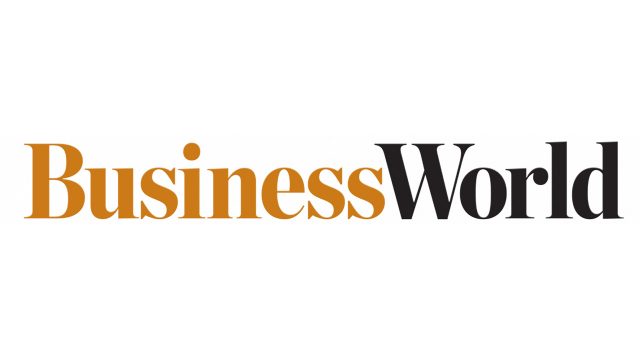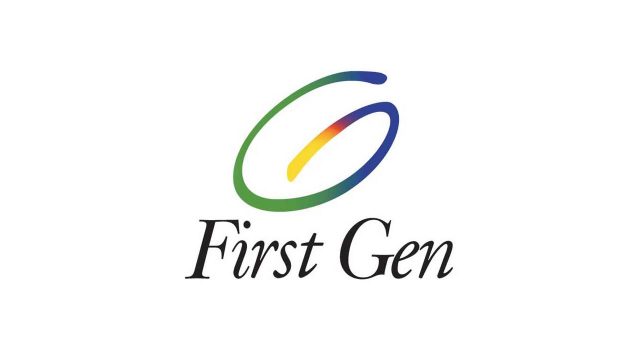Video Game Review
Monster Hunter Rise
Personal Computer via Steam
The Elder Scrolls V: Skyrim Anniversary Edition
PC via Steam
Sniper Ghost Warrior Contracts 2
Sony PlayStation 5
It’s amazing to think that the Monster Hunter series is still going strong. Monster Hunter World and its Iceborne expansion were fan favorites, featuring a smoother progression system alongside all the bells and whistles you’d expect from the series. Great visuals, tons of content, and all the monster slaying and hunting you could hope to get. Monster Hunter Rise, the subsequent release, seeks to emulate that same energy, but with a few added extras to spice up the gameplay. While it might not be as streamlined as Monster Hunter World was, Monster Hunter Rise is, in many ways, a good step forward for the series in terms of gameplay, particularly with some new additions that, after playing, feel essential at enhancing the experience.
In Monster Hunter Rise, you square off against feral beasts, great dinosaur-like entities and terrifying dragon-like creatures in a never-ending struggle of man against his environment. Through conquering foes and using their bones and hides as equipment, your hunter slowly becomes stronger, equipped with better gear and crafting better items in an effort to conquer the wilderness’s greatest foes.
For those unfamiliar with the Monster Hunter series, this gameplay loop is much of what makes any of the releases so addicting. The various monsters you face each have their own quirks and their own weaknesses, vastly changing how you approach your prey, or even what armor or weapons you use in order to counteract their mobility or defenses. Later bosses are vastly more dangerous than early ones, and when you’re tracking them through the map, using the environment to shadow your movement and catch them by surprise, it can really be a fun, if edge-of-seat, time.
However, Monster Hunter Rise isn’t just content to give you what you’d expect. It goes above and beyond that, adding in some mechanics that, while taking some getting used to, feel almost integral to the gameplay experience, and can make it difficult to go back to the previous games.
The most obvious of these are the additional mobility options you now have access to in Monster Hunter Rise. Being able to ride mounts is a game changer in a traditionally slower Monster Hunter experience. The slow start-up prep has been drastically reduced because of this, letting players move across the map faster and filling in the dead air. However, there’s still also a very good incentive in beating down weaker creatures. By being able to mount and take control of them, you now have more options available to you; imagine being able to use otherwise-dangerous foes turned allies against your prime target. Being able to make use of monsters like wyverns and rajangs against far more dangerous foes is not amusing, it’s also very memorable to finally be able to take control of iconic Monster Hunter enemies.
The quests you’ll be undertaking in Monster Hunter Rise will mostly be cookie cutter, and not much new has changed in terms of mission variety. You’re still going around, taking down monsters, and grinding their bones into materials for crafting. However, what has changed are the variety of monsters you’ll now face. In addition to some of the familiar ones, new monsters are now available to take down, and these add much to the replay value, especially for a veteran of the franchise. It might not seem like much, but the presence of new monsters adds a lot of variety in how your encounters will go, as they are just as memorable as the older monsters were; they bring with them their unique sets of armor and weapons to be crafted from their body parts.
Monster Hunter Rise is a blast to play alone, but it is best played with friends. There is a lot of variety in the cooperative missions you’ll be able undertake even as your teammates complement your weapon styles. The change in pacing alters how you’ll do your hunts, and plenty of them in ways that serve to make cooperative play a more engrossing experience. Coupled with Switch Skills that let you customize the available combos on your weapons, and Monster Hunter Rise really shines as a game that lets you express yourself in its systems, both in what you wear and in how you fight.
If there’s a negative, it’s that parts of Monster Hunter Rise feel lacking when compared to Monster Hunter World and its Iceborne expansion. While Monster Hunter Rise has better variety and pick of monsters and monster encounters, Monster Hunter World still has a rich, memorable biome system, with plenty of environments to navigate and tons of content on offer, especially with its strong endgame. Parts of Monster Hunter World still feel superior because of this, and anyone who’s enjoyed it to its fullest may be a little disappointed to see that Monster Hunter Rise hasn’t quite lived up to the environmental diversity that its predecessor boasts of. That said, it is still certainly a far more memorable and exciting experience, so much so that even those who aren’t fans of Monster Hunter’s gameplay might find something to love in Monster Hunter Rise.
Monster Hunter Rise does a lot to make the game feel faster paced, and it’s succeeded in a way that should serve to change the Monster Hunter gameplay loop for good. With less downtime, more monsters, and more options to consider, Monster Hunter Rise does a great job at adding to the already robust formula its predecessors make use of. Highly recommended.
THE GOOD:
• Tons of new monsters and content to explore
• Very entertaining mount system
• Enjoyable combo system
THE BAD
• Some parts don’t feel as fleshed out as Monster Hunter World and its Iceborne expansion
• Not much mission variety to break up the grind
RATING: 9.5/10
POSTSCRIPT: It’s hard not to talk about The Elder Scrolls V: Skyrim when the game has seen a rerelease on pretty much all platforms nowadays. The game is already 10 years old as it is, and to think that it’s still able to see a fully functional release on consoles like the Nintendo Switch really speaks to the traction it continues to have.
The Elder Scrolls V: Skyrim Special Edition celebrates that with — what else? — yet another release. Officially titled The Elder Scrolls V: Skyrim Anniversary Edition, the latest bundle for the personal computer comes packed with the Special Edition of Skyrim, alongside the Anniversary Edition Upgrade downloadable content, which comes packed with Bethesda’s own Creation Club content. What this means is that you’ll have access to the enhanced textures, remastered music, and extra graphics options available to the Special Edition, as well as to the new quests, monsters, weapons, and gimmicks that the Anniversary DLC has to offer. It’s a solid bundle overall, especially for those who aren’t yet familiar with what is arguably Bethesda’s most popular The Elder Scrolls game.
In The Elder Scrolls V: Skyrim Anniversary Edition, players take control of the mysterious Dragonborn after just having crossed the border into Skyrim. After being captured by the Imperial Legion and sentenced to death, you find your execution put on standby after a sudden dragon attack, allowing you to escape during the chaos to safety. You’re quickly tasked to report news of this sighting to the local Jarl, where it’s soon discovered that you have the power to harness dragon souls, and are the only one with the capability to stop Alduin, the destroyer.
To do this, you must hone your skills slowly, master the arts of combat and magic, forge and scavenge better armor and gear, and recruit allies that can help you combat this coming foe. You’ll explore ancient tombs filled with undead, square off against bandits, giants, and elementals, and take down the toughest of foes during your quest, and with how The Elder Scrolls V: Skyrim Anniversary Edition is laid out, the world is your oyster.
This is where the game is at its best. Basking in its open world, you get to be free to carve your path as you please. While it might not make sense narratively, The Elder Scrolls V: Skyrim Anniversary Edition prioritizes your freedom to enjoy the world as you like. While parts of it do show its age, the abundance of quests and characters you can meet and interact with more than make up for its shortcomings. Each city you come across has its own web of problems to solve, and the many dungeons you encounter are filled with all sorts of foes to defeat. The loot they give can also be appealing, giving you the edge by rewarding you with gold to fund your future excursions, or valuable, unique items that shift how you approach the battlefield.
This is all laid atop a robust, enjoyable role-playing game system that rewards good use of your skills. Some of the most enjoyable moments in The Elder Scrolls V: Skyrim Anniversary Edition come out when you’re training your skills in smithing or enchanting, as parts of the game really do reward your patience when planning out this sort of thing. True, it’s nowhere close to the deep mechanics that The Elder Scrolls III: Morrowind or The Elder Scrolls II: Daggerfall had established previously, but there’s still a joy to found in what it has to offer. Its accessibility to both power gamers and casual players is nothing to be scoffed at, and that’s what really makes The Elder Scrolls V: Skyrim Anniversary Edition shine best. It might not be as intricate as previous titles, but it’s hard to deny that it’s still pretty addicting, especially when you look at the modding scene, which adds not only hundreds of new content to explore, but new ways to explore this content as well.
Make no mistake. The Elder Scrolls V: Skyrim Anniversary Edition does have issues, and they are plenty. It is the center of memes and bugs, with the phrase “It just works,” plastered on the front of its box alongside that of Fallout 4. It’s stable, but it is likewise a product that mostly relies on third-party modifications to enhance its experience. It’s a good game, even a great one, but marred with flaws that the latest iteration doesn’t manage to fix.
If anything, the Anniversary DLC adds mostly extra content — more quests to do and more new unique items to find, but very little outside of that. In a lot of ways, the Anniversary DLC is actually quite underwhelming, adding new things to play with in The Elder Scrolls V: Skyrim Anniversary Edition, but not really enough to significantly alter the typical Skyrim experience.
Even so, The Elder Scrolls V: Skyrim Anniversary Edition is still pretty damn good to play, especially if you’re willing to install Nexus mods to supplement your game. Additional features like enhanced user interface are almost essential to making the most out of your Skyrim experience, and new content like additional followers, new weapons, new animations, and entirely new quests go a long way in helping you enjoy your game. Entire gameplay overhauls like Enderal and Skyrim’s own Survival mode do a great job in introducing new universes and new ways to play, and all of that is accessible through the Special Edition.
With the ability to your tinker with your game to the fullest, the modded The Elder Scrolls V: Skyrim Anniversary Edition is in a lot of ways superior to the vanilla experience, and easy to install as well. There’s little reason not to dip your hands into these mods, and, if nothing else, these mods alone will already guarantee you’ll be able to enjoy your time in Skyrim. It may take a bit of time to really find the mods that suit your preferred gamestyle, but with some patience and some technical know-how, Skyrim can still be a fun, new experience even in 2022.
THE GOOD
• Enjoyable, accessible Skyrim experience
• Updated graphics pair well with the enhanced content that the Anniversary DLC has to offer
• Mods galore to enhance your gameplay experience
THE BAD:
• Vanilla experience is still the same
• Not as deep as its predecessors, and has mostly forgettable story beats
• Still buggy even 10 years after initial release/launch
RATING: 9/10 (with mods); 7/10 (vanilla)
Sniper Ghost Warrior Contracts 2 is quite a mouthful insofar as titles go, and it certainly sticks out, which is perfect for a game like this. Playing as a sniper contractor where you’re assigned to take down targets at extreme range is not a type of game you’ll commonly see anymore.
But it’s at the heart of the game: You’re out to take down foes with extreme precision. Armed with your trusty sniper rifle, it’s up to you to land your highly lethal shots into the cranium of foes willing to stick their head out of cover.
To do this, you’re going to have to line your shots up properly. Sniper Ghost Warrior Contracts 2 prides itself in simulating its bullet physics properly, meaning your sniper rifle doesn’t function as a hit-scan weapon so much as a highly deadly projectile weapon. Close range shots are still pretty easy, often landing exactly where you point it at, but shots taken at extreme ranges work differently, being weighed down by gravity and held back by air resistance, causing extreme bullet drop. It might seem like a frustrating mechanic, but this is where most of the core gameplay comes in.
See, Sniper Ghost Warrior Contracts 2’s premise is simple. You have a rifle, you have targets to take down, and you have to do it efficiently. What this brief description doesn’t really elaborate on, though, is the amount of thought you have to put into the game to really succeed. Positioning is key here, and so you need to search for safe vantage points to take your shots from while not exposed to enemy fire. Proper timing is also important, necessitating patience and understanding how bullet drop works. What’s more, shooting your target directly isn’t often the only way to proceed. Environmental objects and hazards can be used to your advantage, shooting at them to expose enemies from cover or flush them out of position. All of these are animated to underscore gratuitous violence, with limbs flying off and slow-motion camera work to celebrate your near-impossible shots.
Sniper Ghost Warrior Contracts 2 can be good fun, especially if you have the patience to enjoy what it offers. Straying far from the fast-paced military shooters that games like Call of Duty offer, Sniper Ghost Warrior Contracts 2 is all about lining your shot with methodical precision. The levels you explore have enough space for you to find your vantage points and learn your enemy’s position, and while the foes are dangerous, they’re manageable with a bit of patience and plenty of good aim.
On the Sony PlayStation 5, Sniper Ghost Warrior Contracts 2 runs beautifully on a consistent 60 frames per second in Performance Mode. While it does sacrifice some graphical fidelity, it still manages to look better than its PS4 release while also playing much smoother. Load times are also faster, allowing you to get to missions quicker. The PS5 edition also comes with additional free DLC for you to sink your teeth into if the base campaign isn’t enough.
If you like the prospect of taking difficult shots and delivering death from afar with ruthless efficiency, consider picking up Sniper Ghost Warrior Contracts 2. It’s a niche game because of its pacing and what it asks of its players, and it may be a tad short in length, but you’ll find it stays true to what it intends to deliver.
THE GOOD:
• Excellent sniper simulation, with a keen focus on proper shooting and aim
• Good variety of levels to enjoy, with some freedom to approach levels as you please
• Gratuitous and cinematic slow-mos make taking difficult shots feel extra satisfying
THE BAD:
• Learning curve can be tough in terms of estimating the bullet drop
• A bit slow-paced, relying on methodical movement and positioning
• Feels a little short overall
RATING: 8/10
THE LAST WORD: Nippon Ichi Software America will be releasing Disgaea 6 Complete on the PC, PS5 and PS4. The latest iteration of Disgaea 6: Defiance of Destiny, reviewed by BusinessWorld last month, incorporates all the DLCs made available since the title’s release in Japan early last year. The Limited Edition of Disgaea 6 Complete can now be preordered on the NISA Online Store (https://store.nisamerica.com/disgaea-6-defiance-of-destiny).
Meanwhile, NISA has moved the release of two titles: The Cruel King and the Great Hero to March 15, 2022 in North America and March 11 in Europe; and Yurukill: The Calumniation Games to July 5 in North America and July 8 in Europe and Australia.

























